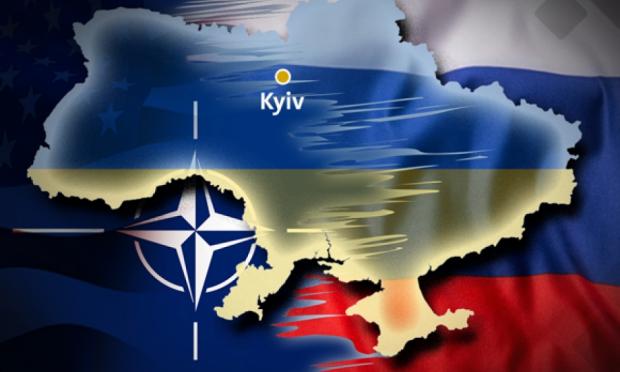The next NATO Summit is scheduled to take place July 11-12 in Lithuania, where its member states are expected to consider, among other things, the rapid accession of Ukraine to the Alliance.
"NATO scrambles to fast-track Ukraine's membership as decisive summit looms", is the relevant headline of an International Media article which points out:
"Moscow cannot prevent Ukraine from joining NATO, alliance chief Jens Stoltenberg said on Thursday, as differences between the allies over the speed of Kiev's accession became apparent just weeks before a decisive summit mid-July in Vilnius.
All allies agree that Moscow has no veto power against NATO enlargement,” Stoltenberg told reporters as NATO foreign ministers gathered in Oslo, seeking to dispel any signs of discord ahead of the summit.
NATO agreed in 2008 that Ukraine would eventually join the alliance, but leaders have so far taken no steps, such as giving Kiev a plan, that would set a timeline for bringing Ukraine closer to the alliance.
At the Vilnius summit, NATO leaders aim to send a strong message of support to Kiev. But with just six weeks to go, pressure is mounting for the allies to find common ground on exactly what they will offer Ukraine.
While Kiev and its closest allies in eastern Europe are calling for concrete steps to bring Ukraine closer to membership, Western governments such as the United States and Germany are wary of any move that could bring the alliance closer to war with Russia.
Lithuanian Foreign Minister Gabrielius Landsbergis said Kiev had suffered two invasions while waiting for a response from NATO for 14 years.
"It's time to really sit down and find a very specific answer on how Ukraine will move closer to NATO and when it will join the alliance," he said.
His call was echoed by his Estonian counterpart, who urged allies to offer Kiev a clear path to NATO and strong security guarantees after the war to leave no "grey zone" for Russia to exploit .
"Ukraine needs to find a clear path and next steps on how to join NATO," Estonian Foreign Minister Margus Tsachna said.
Stoltenberg also called for a framework of security guarantees for Kiev aimed at preventing Russia from taking military action against the country again.
Other allies, including Germany and Luxembourg, have highlighted the dangers if NATO rushes to let Kiev join.
"NATO's open door policy remains in place, but at the same time it is clear that we cannot talk about accepting new members in the midst of war," said German Foreign Minister Annalena Baerbock.
Luxembourg's Jean Asselborn warned that NATO's mutual aid clause meant the alliance would go to war with Russia if it accepted Ukraine as a member while the fighting continued.
Ukrainian President Volodymyr Zelenskiy, speaking at a meeting of more than 40 European leaders in Moldova, reiterated Kiev's readiness to join NATO.
In any case, the concerns about a direct military confrontation between NATO and Russia, in the event of Ukraine joining NATO and while the war is ongoing, are reasonable.
However, if we look at it another way, such a development could also mean an end to the war automatically, since Russia would keep Crimea, Mariupol and all the rest of the territories of Eastern Ukraine that Ukraine occupied and the rest of its territories, since neither Russia would like to fight with the more compact NATO than ever, but neither would the European countries of the Alliance.
Our assessment is that at this Summit it will not be decided on the immediate accession of Ukraine to NATO, but it will be provided with guarantees for its protection by the Alliance against Russia, after the end of the war with it.
However, we believe that the issue of Ukraine joining NATO will come to the fore with great momentum, right after the planned Ukrainian attack, which in our opinion will also mean the swan song of Kiev's offensive capabilities.
Therefore, after this and depending on the territorial gains for Ukraine, it would seem more likely that it would join NATO, in order to keep the territories acquired from Russia, while at the same time the NATO countries will have shown obvious signs of economic cachexia, due to the ongoing providing military aid to Kiev and increased inflation due to the energy crisis, the main culprit of which is the Russia-Ukraine war.



